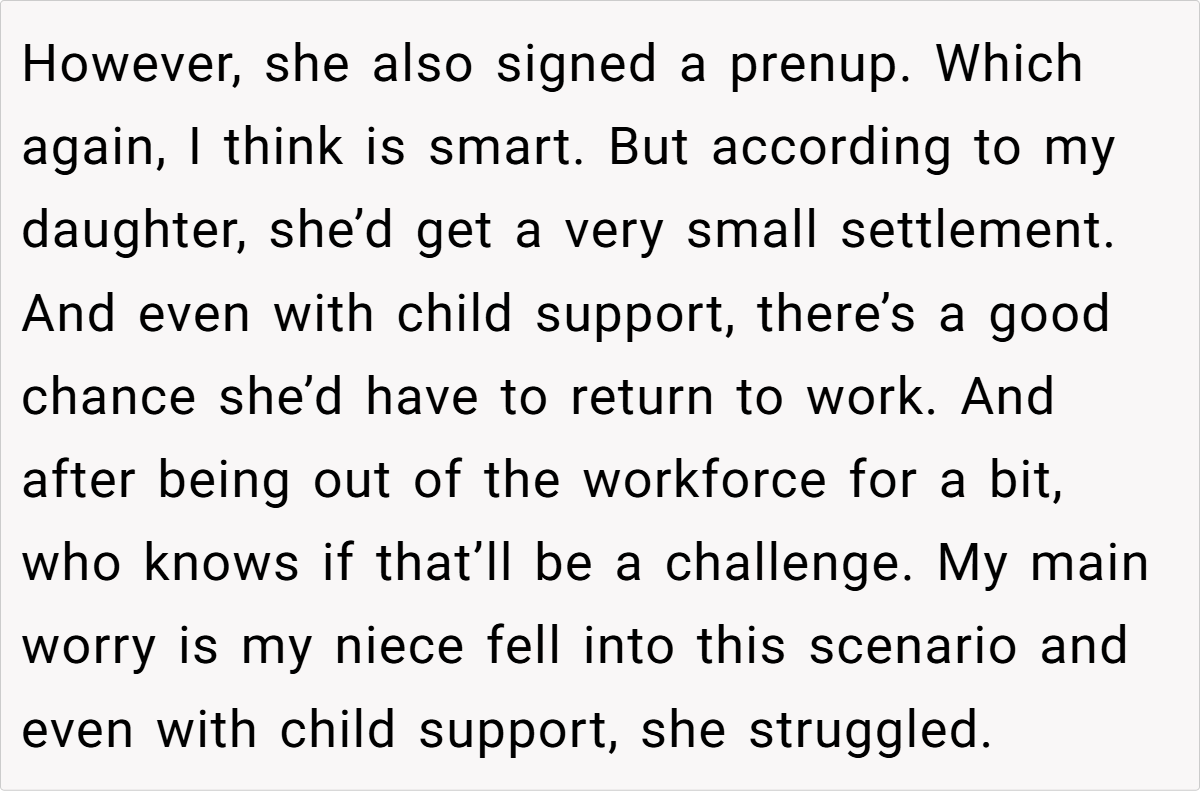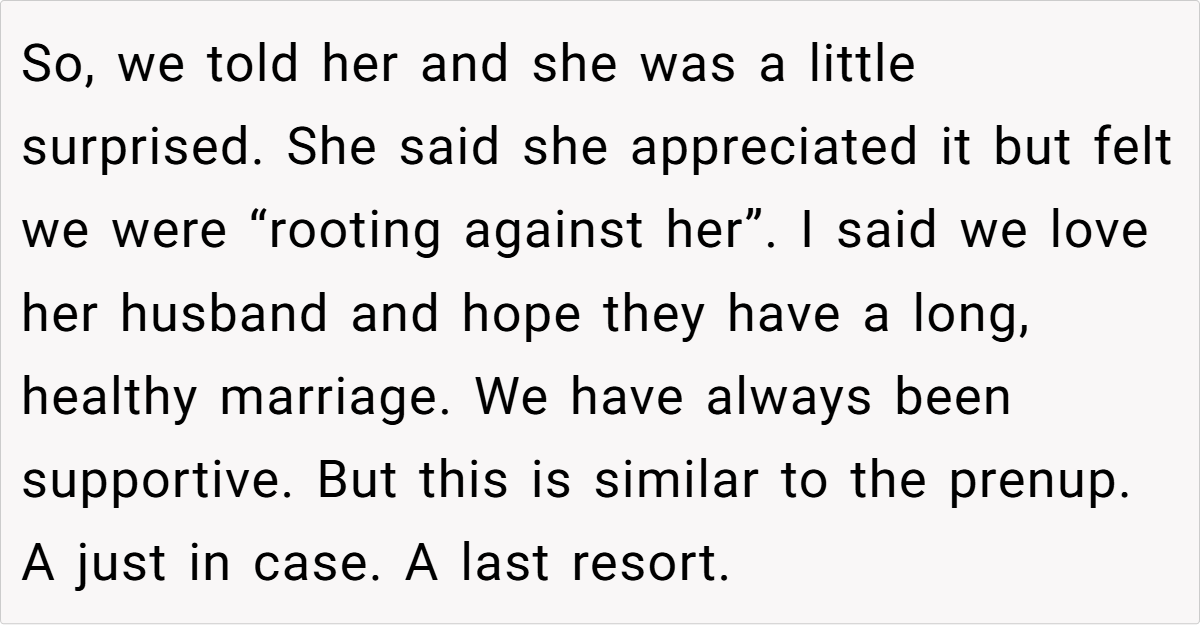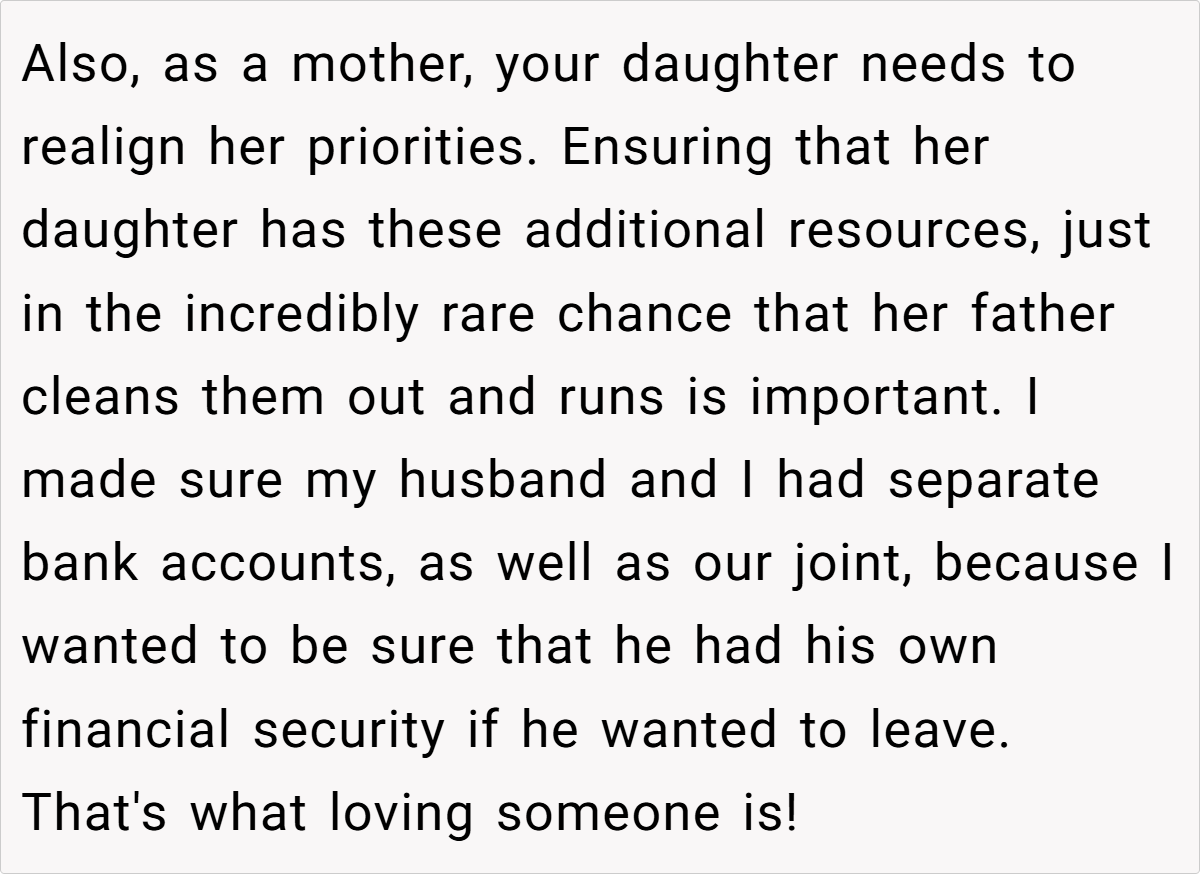AITA for setting up a “just in case” fund for my daughter?
When it comes to protecting our loved ones, especially in unpredictable life circumstances, parents often go to great lengths to ensure their children’s financial and emotional security. In this story, a set of well-intended parents has established a “just in case” fund for their daughter—a stay-at-home mom who recently had her first child—so that she has a financial safety net in the event of a divorce.
The daughter, however, feels that this move is akin to “rooting against her,” and her husband is furious, interpreting the fund as a sign of distrust. This situation brings up difficult questions about balancing prudence with trust in family relationships.

‘AITA for setting up a “just in case” fund for my daughter?’






Financial experts and relationship advisors stress that setting up a contingency or “just in case” fund is a prudent and practical measure rather than a sign of distrust.
In this situation, the daughter—who has chosen to be a stay-at-home mom and has signed a prenup limiting her potential settlement—is being given a financial safety net to help secure her future if the marriage should fail. Experts point out that measures like prenups and reserve funds are standard practices meant to safeguard against unforeseen challenges, not to predict or encourage divorce.
They emphasize that establishing such a fund is an act of care: it acknowledges that while the couple may have strong life insurance policies and other plans in place, the reality of financial vulnerability—especially after years out of the workforce—can be unpredictable.
Given that past family experiences have shown that even with support systems like child support and insurance, financial hardship can occur, this backup plan is designed solely to protect the daughter’s well-being. Ultimately, the intention is not to undermine trust in the marriage but to provide a safety net that reinforces long-term security, much like a prenup does.
Check out how the community responded:
Many community members empathize with the parents’ intentions. A common sentiment is that planning for the unexpected is simply a responsible act—even if it may come off as pessimistic. Others, however, argue that discussing such plans with family members can be emotionally charged and that the tone in which it’s communicated matters.
Some commenters note that while the fund is a smart safety net, the way it was introduced might have inadvertently hurt the daughter’s feelings. There’s a recurring theme: parents must balance financial prudence with fostering trust and confidence within the family.














In the end, the decision to set up a “just in case” fund is not inherently malicious—it’s a precautionary measure intended to protect a loved one’s future. However, the emotional fallout from such actions highlights the complexity of family dynamics, especially when trust and financial planning intersect.
While some see it as a necessary safety net, others feel it implies a lack of faith in the marriage. What do you think? Is it reasonable to prepare for the worst while hoping for the best, or does this approach risk undermining trust? Share your thoughts and experiences in the comments below.

